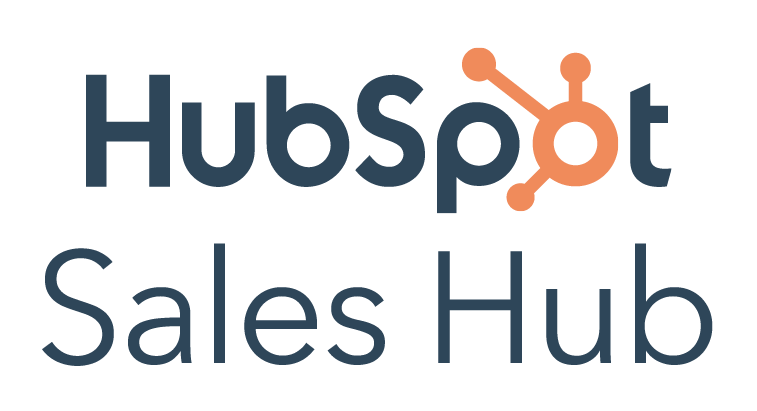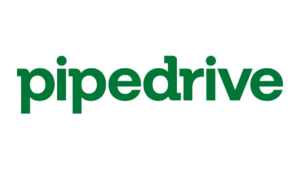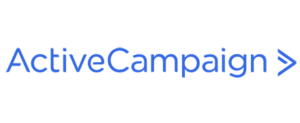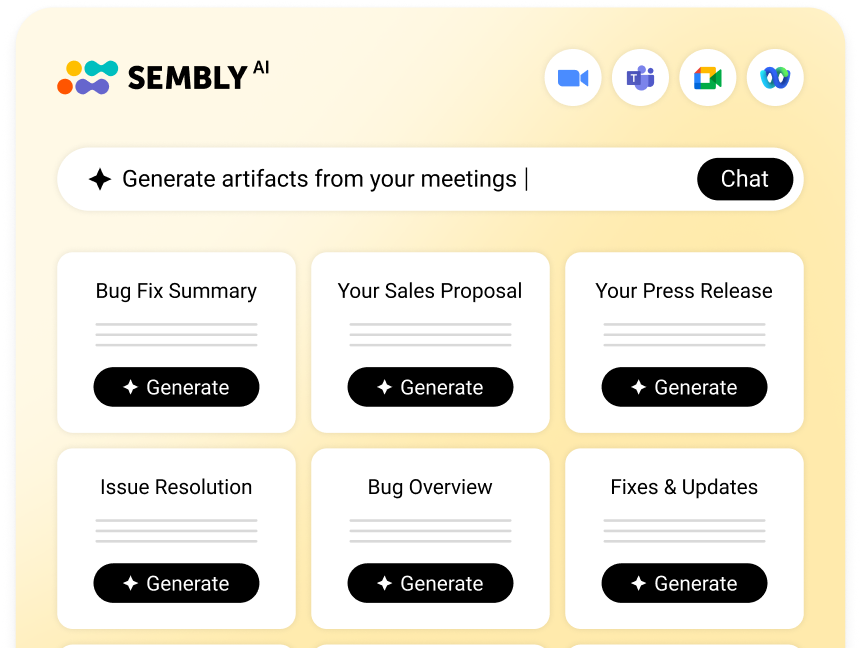Table of Contents
ToggleSales teams often face challenges managing responsibilities such as lead generation, follow-ups, and even closing deals. All the sales automation solutions available serve the purpose of improving the processes and enabling teams to focus on strategy and nurturing stronger relationships.
This guide will tackle 12 sales automation tools that can increase the sales productivity of your team for 2026. Their functionalities, advanced sales automation features, and different pricing strategies are aimed at solving the needs of sales in the modern world.
What Are Sales Automation Tools?
Sales software products with the ultimate goal of automating the more difficult and tedious parts of the sales process are known as sales automation tools. They could be sending personalized emails, managing a pipeline, tracking leads, or scheduling follow-up calls. Since these sales tools eliminate the requirement for any manual sales and marketing effort, they save a considerable amount of valuable time that can be put into closing more deals and more important sales goals.
They further assist in promoting consistency in different teams to bring about a similar method of implementing and communicating with potential customers. So, not only do these improve effectiveness, but they also enhance managing relationships with leads, as clients receive what they need when they need it.
Apart from making these tasks simpler, sales automation tools are equipped with the capability of providing the sales and marketing teams with valuable insights into sales performance, thus enhancing the decision-making process. A lot of these web-based tools drive on artificial intelligence technology, thereby offering predictive analytics and recommendation engines that boost the overall sales strategy.
Through the use of marketing automation tools, companies have the ability not only to improve the workflow prospecting process of the firm but also ensure regular follow-ups with the potential clients so that no clients are missed out on.
Benefits of Using Sales Automation Tools
There are many benefits of sales automation tools important to any modern sales team. These automation solutions do assist businesses in improving workflows, decision-making, and scaling by taking away repetitive and time-consuming administrative tasks. Below, we go through some of the key benefits in detail:
Time-saving
Automation tools provided for sales representatives enable them to input data and make follow-ups without any effort. This saves a significant amount of time when otherwise such work would have been very repetitive in nature. The amount of time wasted making redundant sales calls has since been transferred to more constructive tasks like establishing business relationships and closing business deals. Tasks that are automatic can free up more time and improve the productivity of teams, allowing for better results.
For instance, automation can schedule follow-up personalized emails at the perfect intervals, ensuring no lead is overlooked, even during peak sales seasons. Additionally, advanced tools handle document creation, such as proposals or contracts, freeing up hours of manual effort.
Improved Accuracy
Automation minimizes human errors, ensuring a seamless workflow. For example, automated data entry significantly reduces the likelihood of inaccuracies in customer records. Consistent and reliable processes also contribute to higher customer satisfaction, as follow-ups and customer communications are executed precisely. Tools that offer error detection capabilities can identify inconsistencies in data inputs, ensuring teams work with clean and accurate datasets, which is vital for forecasting and reporting.
Data-driven Decisions
Artificial intelligence and advanced analytics integration assist in determining the most viable and high-quality leads. These powerful tools process extensive data sets to ascertain the likelihood of sales conversion of various prospects and thus assist sales teams to focus their attention meaningfully. Such investment analytics can also guide what marketing campaigns and sales strategies to adopt in the future.
Real-time dashboards also serve the purpose of providing information and progress of certain campaigns instantly, thus enabling the customer success teams to re-strategize using the metrics immediately. Predictive analytics go even more and further than and define only leads – they may also suggest desirable pricing or inform about the possibility of upselling.
Scalability
Sales automation tools are developed together with the business to meet growing demands. If you hire new people or enter new territories, automation tools ensure that your business grows smoothly. They allow the altering of workflows and adding more tools to ensure continued relevance over the long term.
Such scalable platforms usually increase in international support with multi-language and multi–currency requirements which is critical for tackling the global business expansion. This ensures all types of businesses remain competitive without the risk of outgrowing their technology.
Top 12 Sales Automation Tools in 2026
Sales automation tools make it easier to automate processes. However, it’s crucial to make the right decision as to which sales automation software to use. The following comparison table provides a summary of the top tools. This should guide your decision-making.
|
Tool Name |
Key Features |
Starting Price |
Ideal For |
|
Sembly |
AI notes, sales documents, CRM integration |
Free; $29/month |
AI-driven insights |
|
HubSpot Sales Hub |
Email tracking, scheduler, dashboards |
Free; $50/month |
Integrated sales & marketing |
|
Salesforce Sales Cloud |
Einstein AI, advanced reports, multi-channel tools |
$25/user/month |
Large enterprises |
|
Pipedrive |
Drag-and-drop pipelines, email automation |
$14.90/user/month |
Small & medium businesses |
|
Zoho CRM |
AI assistant, Zoho integration |
$12/user/month |
Startups & SMBs |
|
ActiveCampaign |
Email marketing, CRM integration |
$29/month |
Customer relationship building |
|
Freshsales |
Built-in phone/email, visual pipeline |
Free; $15/user/month |
Teams needing simplicity |
|
Outreach.io |
Multichannel tools, engagement analytics |
$100/user/month |
Enterprise-level operations |
|
SalesLoft |
Call tracking, email templates |
$75/user/month |
Team collaboration |
|
Copper CRM |
Gmail integration, notifications |
$25/user/month |
Google Workspace users |
|
Close CRM |
Built-in calling/SMS, workflows |
$29/user/month |
SMBs needing direct engagement |
|
Nutshell CRM |
Marketing/sales automation, pipeline reports |
$19/user/month |
Growing small businesses |
1. Sembly

Sembly is an advanced tool for gaining insights from customer conversations, tracking the sales pipeline, and automatically generating documents, such as sales proposals, driven by conversations with your customers. It uses AI technology to automate processes and enhance efficiency and may be beneficial to businesses that want to boost their sales activity and dramatically reduce time spent on document creation. Sembly can be used to share customer conversations across the team as well automatically populating your CRM with meetings notes, transcripts, and tasks. Built with an intuitive interface, Sembly is easy to use and does not require teams to be on the technical or tech-savvy side.
Features
- AI-generated documents for the sales team
- Strategic and tactical advisory to close more details
- Integration with popular CRMs
Pros
- User-friendly interface, turn-key onboarding
- AI driven automation
- Exceptional scalability for small businesses
Cons
- Best for teams who interact with customers primarily using video conferencing
- Advanced features may require additional training
Pricing
Free plan available; Team plan starts at $20/month on the annual plan.
2. HubSpot Sales Hub

HubSpot Sales Hub is an excellent sales automation platform that allows sales and marketing to be handled in an integrated way. It provides excellent email tracking, meeting and contact management, and CRM features, and for many companies that wish to improve performance even further, it is an ideal solution.
Features
- Email tracking and automation
- Meeting scheduler
- Customizable dashboards
- Seamless integration with its marketing tools, creating a cohesive ecosystem for lead generation and nurturing
- Advanced reporting capabilities allow teams to measure individual and team performance against set KPIs
Pros
- Excellent integration capabilities
- Free CRM included
- Advanced automation workflows enable teams to handle complex sales processes with minimal manual intervention
- Highly customizable templates for email campaigns and sales sequences
Cons
- Advanced features can get expensive
- Some users report a learning curve for fully utilizing its customization options
- Limited offline functionality for field sales teams
Pricing
Free plan available; premium plans start at $50/month.
3. Salesforce Sales Cloud

One of the best sales automation tools for large corporations that requires maximum customization and scaling is Salesforce Sales Cloud. Thanks to the Einstein AI functionality, sales teams are able to realize real-time insights that enable them to make data-informed decisions in the fast-paced world of sales.
Features
- AI-powered insights with Einstein AI
- Advanced reporting and dashboards
- Multi-channel communication tools
Pros
- Unparalleled scalability
- Highly customizable
Cons
- Steep learning curve for new users
Pricing
Plans start at $25/user/month.
4. Pipedrive

Pipedrive is known for its user-friendly interface for pipeline management, appealing to SMEs. This company offers activity alerts and confirms sales emails to avoid confusion and help teams focus on critical business activities, which simplifies the sales process.
Features
- Drag-and-drop pipeline interface
- Email tracking and automation
- Activity reminders
Pros
- Intuitive design
- Affordable pricing
Cons
- Limited advanced features
Pricing
Plans start at $14.90/user/month.
5. Zoho CRM

The great part about the Zoho CRM system is that it’s not only affordable, but it is also packed with versatile capabilities. Zia, its AI assistant, provides actionable insights, and its integrations with the Zoho ecosystem turn it into one of the best sales automation systems for any company size.
Features
- AI assistant (Zia) for insights
- Workflow automation
- Integration with Zoho’s ecosystem
Pros
- Affordable pricing
- Extensive customization options
Cons
- Customer support can be slow
Pricing
Plans start at $12/user/month.
6. ActiveCampaign

ActiveCampaign combines email marketing and CRM tools and is well-suited for enterprises whose goal is to establish a good rapport with their clients. It offers advanced segmentation along with sales automation platforms that facilitate effective and personalized outreach strategies for potential clients.
Features
- Email and sales automation
- Advanced segmentation
- CRM integration
Pros
- Excellent customer support
- Comprehensive automation features
Cons
- Steep learning curve
Pricing
Plans start at $29/month.
7. Freshsales

Freshsales is part of the Freshworks suite and offers a clean, user-friendly interface combined with AI-driven tools. Its visual pipeline and built-in phone and email features make it a favorite among teams looking for simplicity and efficiency.
Features
- Built-in phone and email
- AI-powered lead scoring
- Visual sales pipeline management
Pros
- Easy to use
- Great customer support
Cons
- Limited advanced features in lower plans
Pricing
Free plan available; premium plans start at $15/user/month.
8. Outreach.io

Outreach.io serves as a complete sales automation tool developed specifically for the enterprise level. With the intent of improving communication and engagement with potential clients, the platform offers multichannel communication and analytical tools.
Features
- Multichannel communication tools
- Sales engagement analytics
- Automated follow-ups
Pros
- Excellent for large teams
- Robust analytics
Cons
- High pricing
Pricing
Plans start at $100/user/month.
9. SalesLoft

SalesLoft focuses on improving sales cadence and fostering team collaboration. Its robust call tracking and analytics features, paired with customizable email templates, make it one of the go-to sales automation systems for streamlining outreach.
Features
- Call tracking and analytics
- Email templates
- Team collaboration tools
Pros
- Excellent customer support
- Detailed analytics
Cons
- Can be expensive for small teams
Pricing
Plans start at $75/user/month.
10. Copper CRM

Copper CRM is tailored for businesses that rely on Google Workspace. Its deep integration ensures a seamless workflow, making it ideal for teams that prioritize Google’s ecosystem.
Features
- Gmail integration
- Workflow automation
- Real-time notifications
Pros
- Seamless Google Workspace integration
- User-friendly
Cons
- Limited features for non-Google users
Pricing
Plans start at $25/user/month.
11. Close CRM

Close CRM is designed for SMBs seeking effective communication and pipeline management tools. Its built-in calling and SMS capabilities make it a standout choice for sales teams focused on direct engagement.
Features
- Built-in calling and SMS
- Pipeline management
- Automated workflows
Pros
- Great for small teams
- Affordable pricing
Cons
- Limited scalability for large enterprises
Pricing
Plans start at $29/user/month.
12. Nutshell CRM

Nutshell CRM provides a comprehensive marketing and sales system designed for small to medium-sized companies. Its user-friendly features and the ability to integrate easily makes it an ideal option for developing businesses.
Features
- Sales and marketing automation
- Pipeline and sales funnel reports
- Email sync
Pros
- Easy to set up
- Affordable
Cons
- Basic features compared to competitors
Pricing
Plans start at $19/user/month.
Criteria for Choosing the Right Tool
The process of selecting the best sales automation software involves assessing various factors to guarantee that it is aligned with the company’s needs. Companies maximize value growth by adopting suitable automation tools that help increase productivity, eliminate redundant processes, and ensure better Returns on Investment (ROI). Some of them are outlined below as evaluation criteria:
Scalability
Select sales automation platforms that can develop in accordance with the growth of your company, in particular if you expect to grow. Expandability is critical to maintaining the effectiveness of the software in an environment where the number of team members and customers increases and new challenges and workflows emerge.
Integration capabilities
Be sure that the software has the ability to integrate with already established systems, for example, marketing applications such as CRMs. Having tools that are compliant with the tech stack minimizes disruptions during workflows and increases productivity by combining all your tools into a cohesive system.
Cost-effectiveness
Balance the features offered with the price to ensure the best value for money. Assess the tool’s long-term benefits and consider factors like subscription costs, setup fees, and potential savings from improved efficiency.
User-friendliness
Opt for platforms that require minimal training and are easy to navigate. A user-friendly interface encourages quick adoption among team members, reducing downtime and accelerating the tool’s impact on your sales processes.
Case Studies: Businesses Thriving with Sales Automation
Real-world examples of companies successfully leveraging top sales automation tools highlight the transformative impact these solutions can have.
Amazon
Amazon’s sales teams utilize Salesforce Sales Cloud to manage their extensive sales pipelines. By implementing this tool, Amazon streamlined its B2B sales processes, enabling real-time data analysis and personalized customer interactions. As a result, Amazon saw a significant increase in deal closures across its enterprise sales segment.
Netflix
Netflix incorporated HubSpot Sales Hub to optimize its enterprise partnerships and marketing initiatives. The integration allowed seamless tracking of leads, automated follow-ups, and efficient communication with potential partners. Within a year, Netflix reported a drastic improvement in partnership acquisition efficiency.
How AI is Revolutionizing Sales Automation
AI-enabled sales automation tools are changing the landscape of the commercial world by providing sales forecasting and personalized outreach technologies. These features allow sales teams to concentrate on the most productive tasks only.
Predictive Analytics
Making use of past data, AI tries to perform future sales forecasts and assumptions about certain customers’ behaviors. By extracting trends and forecasting, the sales reps are able to focus on the leads that provide the best potential.
For instance, AI analytics allows a retail firm to predict seasons when there will be a high demand for a particular item such that the firm can stock enough items and put in place a fitted marketing strategy. It avoids unnecessary work on targets that are far from realizing a profit and increases returns on investments.
Smart Lead Scoring
By looking for key engagement factors and aspects such as demographics, AI lead scoring determines if a potential client is worth pursuing. This way sales target the right leads, which increases the chances of being converted.
Personalized Outreach
AI creates a more personal touch in communication by studying the individual preferences of customers. From focusing on tailored sales emails about special offers to suggesting products, this method enhances customer experience.
For instance, an AI-backed e-commerce strategy may include an AI tool that forwards tailored discounts to clients based on their previous visiting history, increasing the chances of a successful sale.
Workflow Automation
AI automates intricate workflows that sometimes involve follow-up reminders or may also include setting up triggers that perform certain actions when the customer follows a certain course of action. This way, they don’t have to put much effort into building relationships and they have more time to focus on sales processes.
CRM solutions such as HubSpot or Salesforce deploy AI technology to automate lead allocation, email follow-up, and activity logging which would make sure that every interaction with the customer is tracked and nothing goes unobserved.
Continuous Improvement
Machine learning algorithms improve over time by analyzing outcomes and refining their processes. This means sales teams benefit from increasingly accurate predictions and recommendations, keeping them ahead of competitors.
Conclusion
Tools for sales automation are ideal for deployment in businesses that seek competitiveness in the ever-growing market. With Sembly, Salesforce Sales Cloud, and HubSpot Sales Hub businesses will be able to optimize their resources and close more deals faster, improving overall productivity.
Sales automation is not just about doing things more quickly — it is also about being able to outperform other businesses that operate in a fast-paced environment. In this case, automating manual tasks and employing strategic analytics ensures that the company can develop relationships with clients more effectively and plan ahead all the time.
Can your sales team afford to waste time on repetitive tasks? What opportunities could you unlock by implementing a smarter, more efficient workflow? The right tool might not just transform your sales process — it could redefine your success.
FAQs
Absolutely. Modern top sales automation tools can be equally effective for small startups as well as large enterprises. For smaller businesses, these tools can improve operating processes by speeding up repetitive tasks, hence cutting costs and allowing teams of sales professionals to scale up on growth. In larger organizations, sales automation solutions are expected to completely transform almost every aspect of traditional sales operations. AI-driven insights, multi-channel integrations, real-time analytics, and several other advanced functionalities are now considered to be a part of the package.
Some obstacles are team politics, integration with previously used software, and high costs of installation and maintenance. It should be also noted that without the appropriate training, the introduction of new technology could overwhelm the sales reps. Workflow inconsistencies can also impede the integration phase, especially if there are legacy systems involved that are incompatible. However, these obstacles can be overcome through strategic planning, involving key stakeholders and sales leaders in the decision-making process, and rolling out the implementation gradually. Strong customer support from sales automation companies can also reduce the impact.
Success begins with training your sales team and demonstrating the benefits of automation. Providing hands-on workshops or tutorials ensures that sales managers understand how to use the tools effectively. Highlighting tangible results, such as increased efficiency, better lead and customer relationship management, and reduced manual workloads, can foster acceptance. Regular check-ins and feedback sessions during the onboarding process allow businesses to address issues promptly and fine-tune the implementation to suit their unique needs. Partnering with experienced sales automation companies for technical support can also make the transition smoother.
Automation helps the sales force by managing hot leads, cutting communication response times, and automating mundane tasks such as mass emails or call scheduling. These tools facilitate sales reps to focus most of their energy on crucial engagement with customers. Automation provides real-time analytics, trend identification, customer need prediction, and targeted marketing strategy formation. Businesses tend to experience better lead conversion rates, lesser sales cycle durations, and revenue growth post the adoption of automation.
Tool automation for businesses has now become a necessity in order to enhance the level of competition between the firms present in the emerging market. Such tools are capable of improving productivity levels, reducing any chances of error, and are able to extract relevant insights from the numerous relevant data that is present. They allow firms to establish contact with potential customers and clients and make sure they leave no stone unturned.
Automated sales drastically change the sales process for the better. By automating time-consuming and repetitive sales tasks, there is more time to spend on valuable activities within a sales team, including but not limited to closing deals and nurturing qualified leads. Being able to manage leads more effectively, automation also expedites the entire sales process while helping make timely follow-ups, potentially increasing the overall conversion rates. Aside from this, automation provides actionable data analysis and can help insight-based decision-making for businesses to better meet the requirements of the market and their customers. This, in turn, allows for an overall more efficient and scalable sales business.
The importance of sales in a business cannot be overstated. Automation of sales processes allows organizations to understand their customers better. This ensures that the deals are closed faster, hence improving sales. An example of this would be:
- Tools that automate the sales process help to identify sales leads that have the best potential and effectively place them on a priority list, making it easier for your sales team to engage with clients who are predicted to convert.
- There is great potential for automation to optimize the process of leveraging customer data so that the outreach is personalized and clients have a higher likelihood of giving a positive response.
- Interactions and important actions are guaranteed to take place within the time they are scheduled, eliminating the worry of forgetting opportunities.
- Predictive analytics and AI-driven insights enable sales personnel to forecast what the customers want and modify their tactics accordingly.
- Multi-meeting chats
- AI Insights
- AI Artifacts


